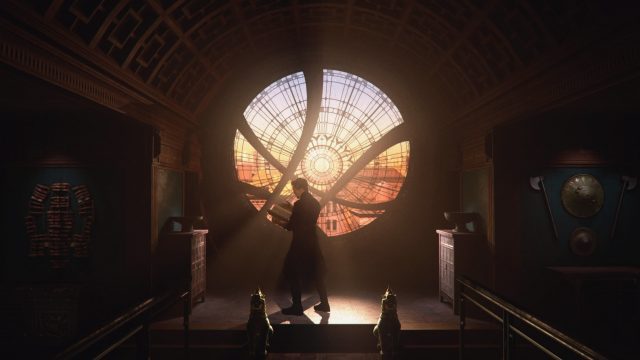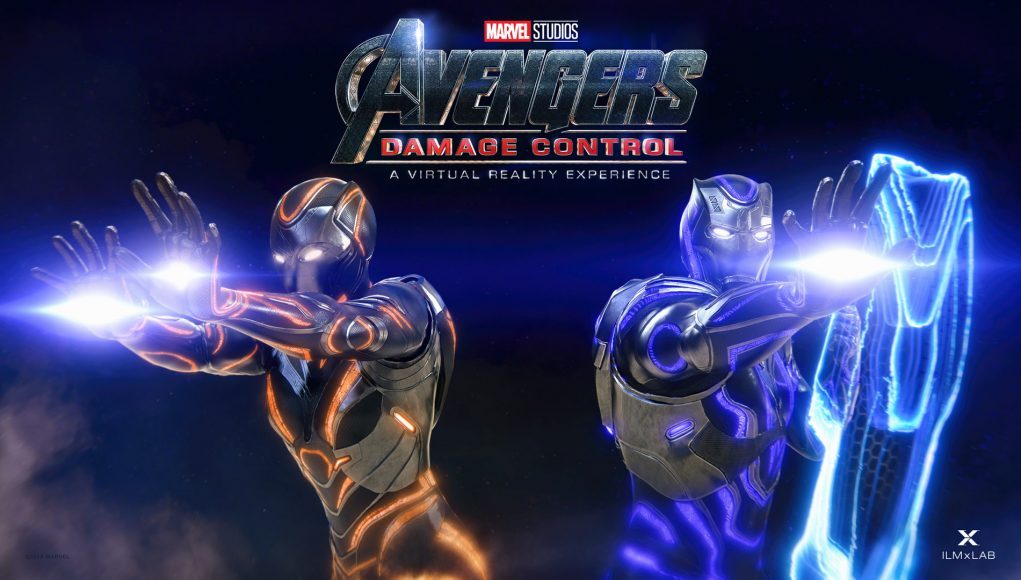The VOID’s latest immersive experience, Avengers: Damage Control is available now. We got a look inside and found a great example of what a VR attraction should be.
Noah, a veteran public media reporter and producer, is the founder and publisher of No Proscenium, which covers all forms of immersive art and entertainment. He’s also a founder of the HERE Summit, the next great gathering of the immersive creative community, in Pasadena, CA in March 2020.
In Wakanda, under the guidance of the world’s most fashionable genius and member of the royal family, Shuri, the armor designs of Tony Stark have been updated and given a makeover. That’s right. The latest in Wakandan technology and Stark Industries state-of-the-art are about to be yours to test drive.
But what was going to be a simple shakedown cruise gets turned into a life or death battle as the unconscionable Ultron has returned from the brink of oblivion to menace first Los Angeles and then the world!
Suit up, recruits, there’s no time for learning the ropes. It’s just the four of you and every last living Avenger against one of the deadliest of their foes!
And that, my friends, is the plot of Avengers: Damage Control, the first collaboration between Marvel Studios and ILMxLab, that also happens to be the longest adventure yet to hit The VOID at around 18 minutes. After donning a VR headset and backpack with up to three other friends, all sense of real space and time gets distorted as the story jumps from Wakanda to Doctor Strange’s Sanctum Sanctorum to a technology graveyard where the past comes back to haunt the heroes of the MCU.
Marvel Studios really opens up the toybox for the ILMxLab and The VOID, with cameos from more characters that you can count, and lead voice performances from Letitia Wright (Shuri), Benedict Cumberbatch (Doctor Strange), Paul Rudd (Ant-Man) and Evangeline Lilly (The Wasp).
And while this feels like it could be one of the short films that accompanied the home video releases of the major Marvel films, this is a ‘hyper reality’ experience, which stands alongside the work that ILMxLab has done with The VOID in the past. Thankfully, what had started to feel a little rote gets switched up with the gifts from the Marvel toybox.
For starters, The VOID’s signature ‘blaster’ gun peripherals stay holstered, relying instead on hand-tracking and gesture controls, allowing you to strike a superhero pose to blast drones out of the sky or block incoming laser blasts. While we’re still in a shooting gallery, it genuinely feels different—and awesome—to get your Tony Stark on.
The tracking here appears to come from the same forward facing sensors that The VOID’s finger tracking relies on, and at times the ‘fist up’ shield-activating gesture didn’t work as consistently as I would have liked. Considering that the punishment for getting hit with a laser blast is a effectively distracting buzzing sensation in the feedback vest, the gesture failures are unfortunate.
What remains interesting is how good, otherwise, the gesture input of The VOID remains. It’s not laser sharp, as there can still a little sense of miscalibration when directly interacting with other players (like shaking hands or high-fiving), still, this is more of a theme park ride than a test of fine motor skills, and the immersive qualities work well enough to suspend disbelief and get you on your way.

The best new features in this particular VOID experience come with the traversal elements. With Stephen Strange in the mix we’re now playing with portals, and the usual ‘you’re in a building doing X’ scenario gets tossed aside for a globe-spanning quest. One of the most memorable moments comes from just walking through the twisty halls of the Sanctum, where the floor looks like it’s ramped down, but because you’re on a flat surface it feels like you’re being pulled backward the entire time. And when you finally reach your destination you discover you’ve been walking up the entire time.
Magick! It’s weird, man.
There’s another great thing about the twisted nature of the halls and the portal jumps from set piece to set piece: I totally lost track with where I physically was on The VOID’s underlying stage. After having run most of the VOID’s experiences before, I’d started to recognize the layout of the stage. They’ve rearranged the virtual map and added some physical details that make the space feel radically different, which is a testament to the VOID’s underlying premise: that a virtual skin can be layered on top of a modular set to create an infinite number of virtual world (hence the acronym: Vision Of Infinite Dimensions).
It’s working.
In Avengers: Damage Control, players will fight robots in Wakanda, get their marching orders from Doctor Strange, fight some more robots in Los Angeles, then take to the skies in a S.H.E.I.L.D. drop ship (apparently the new Stark/Wankadan armor doesn’t come with jet thrusters) for a chase sequence ending in an ultimate battle which has the scale of any MCU third act. All the way you’re mostly blasting things or blocking incoming blasts, as Damage Control is more of a thrill ride than a puzzle box. With things stripped down to the bare essentials in terms of interactivity, the new experience feels squarely aimed at newcomers to location based virtual reality.

Because Avengers remains among most beloved film franchise at the moment, there’s enough ‘oh, cool’ moments packed into Damage Control that we’re bound to see MCU fans headed to The VOID to see what the fuss is about. The good news for them—and those of us holding a torch for immersive entertainment—is that Avengers: Damage Control makes the best case yet for what this kind of experience can be. I envy those who get to have this as their introduction to VR.
For those who have been devouring all things VR, the most interesting things here are the traversal tricks. Redirected walking remains a trip, and there’s some perceptual shenanigans that use The VOID’s stage tech to great effect. We might still be running all this in a game engine, as opposed to doing full volumetric capture of performers, but overlooking the ways in which The VOID activates touch, smell, and kinesthetics would be a mistake. VR isn’t just a visual medium; The VOID recognizes this and engages a broader set of senses. Not to mention that the whole thing is designed so that four teams of four players can use the stage simultaneously. That’s an incredible feat of engineering in and of itself.
It’s also encouraging to see the ILMxLab play in longer formats. They’re already setting the gold standard for storytelling in at-home VR with the Vader Immortal series, and here they get to deliver a blockbuster’s measure of action in a tidy three act short.








